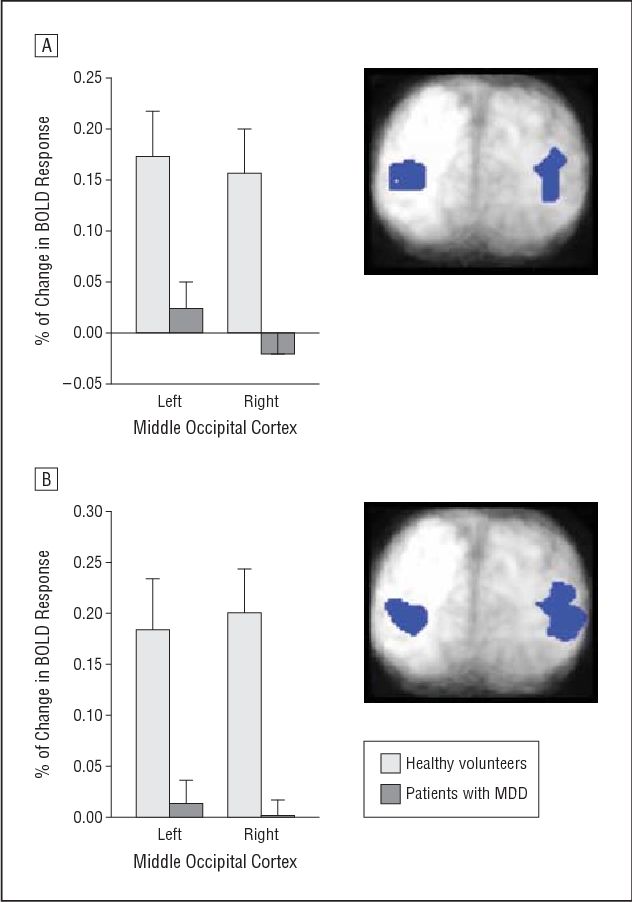The search for treatment-specific biomarkers
Neuroimaging depression research has kept looking for treatment-specific biomarkers capable of predicting an individual’s improvement in response to a particular treatment and nonresponse to an alternative treatment. For example, it has been suggested that neural response to emotional stimuli in visual cortical areas might be a useful biomarker for identifying patients who will respond favorably to scopolamine (Furey et al. 2013).
Similarly, in 2012 another study confirmed earlier suggestions that decreased reactivity to negative words in the subgenual anterior cingulate cortex (sgACC) predicts outcome in cognitive therapy for depression (Siegle et al. 2012; cf. Greicius et al. 2007). And research published in 2013 found that insula hypometabolism is associated with good results with cognitive behavioral therapy and poor response to escitalopram (a selective serotonin reuptake inhibitor), and insula hypermetabolism, with remission to escitalopram and poor response to the same kind of therapy (McGrath et al. 2013).


Find all the articles in the order they were mentioned by Vidal and Ortega:







































































0 comments
Sign in or create a free account